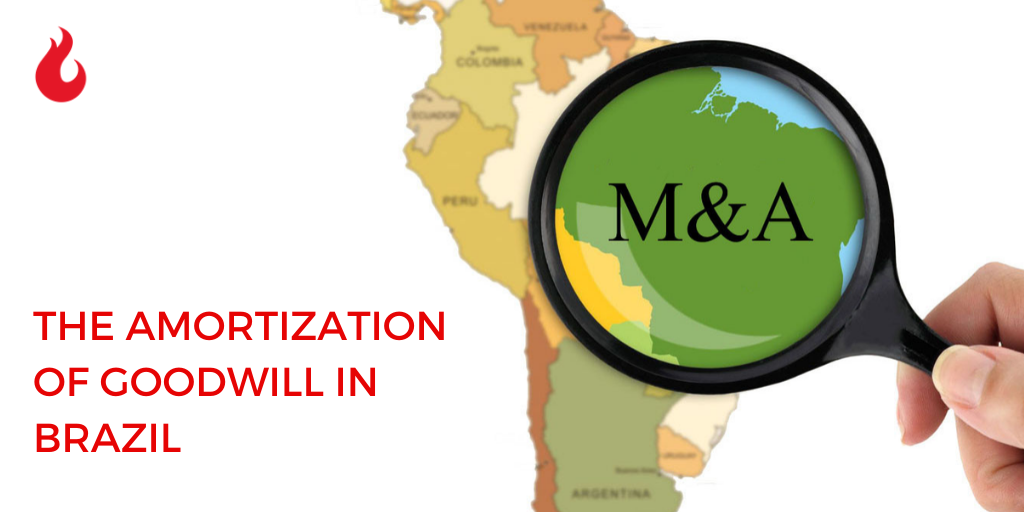Address
304 North Cardinal St.
Dorchester Center, MA 02124
Work Hours
Monday to Friday: 7AM - 7PM
Weekend: 10AM - 5PM
Address
304 North Cardinal St.
Dorchester Center, MA 02124
Work Hours
Monday to Friday: 7AM - 7PM
Weekend: 10AM - 5PM


According to the current Brazilian Law, goodwill corresponds to the remaining amount once the purchase price of the acquisition is reduced by the net equity and the fair market value of the assets.
In general, In order for companies to be able to amortize goodwill for tax purposes, they must, however, comply with certain formal requirements introduced by Law 12,973/2014. These include those relating to: (1) the merger of the acquired company and/or the target and the acquirer; (2) the elaboration of the purchase price allocation (PPA) report that, inter alia, attributes specific information relating to the greater or lesser value of the assets; and (3) the filing of the PPA, or its summary, with the Brazilian tax authorities or the filing of the summary report with the Cartório de Registro de Títulos e Documentos (Registry of Deeds and Documents).
The tax authorities are currently paying special attention to tax planning in an attempt to negate any transactions undertaken with the sole intention of disguising a taxable event or the nature of the elements that give rise to a tax liability. Specifically, the tax authorities have scrutinized merger and acquisition transactions that give rise to goodwill and result in the “pushdown” of goodwill to the target company.
As the use of a holding company as an acquisition vehicle is common in respect of foreign entities that intend to acquire a Brazilian company, in accordance with the free enterprise principle embedded in Brazil’s legal system and as goodwill and its potential tax deductibility are clearly defined in the tax legislation, i.e. in Law 12,973/2014, the tax authorities have tried to challenge certain merger and acquisition structures by adopting the concept of substance. The intention of the tax authorities is to question local goodwill, its existence and its tax deductibility.
Consequently, in the opinion of the tax authorities, if a holding company, which acts as an acquisition vehicle, lacks substance, such a holding company is not entitled to the benefits associated with the tax amortization of goodwill.
The following is a list of the characteristics, based on our practical experience and on the Administrative Council of Tax Appeals, CARF, which companies can use to provide evidence of the substance of the tax goodwill arising as a result of investment in a local holding company:
a. Acting as the purchaser and/or the holding company, i.e. the holding company should be the party signing the Share Purchase Agreements (SPAs), the memoranda of understanding (MoUs), paying the purchase price, etc.
b. The holding company should, on an ongoing basis, act as the holder of the investment. Consequently, the holding company should formalize its decisions as a shareholder in the local subsidiary, hire advisors, if required, issue reports and/or analyse its own investments, etc.
c. The holding company should bear the corresponding risks and functions.
d. The holding company should have an adequate number of professionals with the appropriate knowledge, ability and power to make strategic decisions, as well as the capability of providing the necessary information and data to its shareholders in line with the scale and complexity of the investments.
e. The holding company must maintain its own accounting records, books, bank account, etc. It should also bear its own costs and the administrative expenses, i.e. payroll, fringe benefits, rental, telephone bills, management travel costs, etc.
f. Despite the fact that the holding company does not require considerable physical infrastructure, it should still have a minimum physical infrastructure in which to operate, i.e. an office, telephones and the related telephone numbers, internet access, etc.
Finally, an other important point to be observed is the timming of the transactions. Brazilian tax courts have expressed reservations and/or concerns regarding transactions carried out within a very short time frame that give rise to tax savings. This is especially so if no other reason can be identified to justify the timing of the events in question.
Based on the analysis of some recent decisions from the CARF, it can be observed that a minimum timing between the closing of a deal and a merger is recommended to avoid any challenges regarding the tax amortization of goodwill. For instance, the following abstract outlines the vote of one Reporting Judge, “The succession of acts, the short timing between them and the termination of the company through a merger reveals that there was never a real intention to constitute a legal entity to effectively operate according to its social object but rather in fact to create an ephemeral legal entity, of a temporary nature, that could enable the goodwill registration to be amortized by a group company”. Consequently, timing may be an important criterion in justifying the use of a given vehicle, remember that when investing around here.